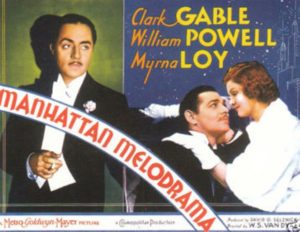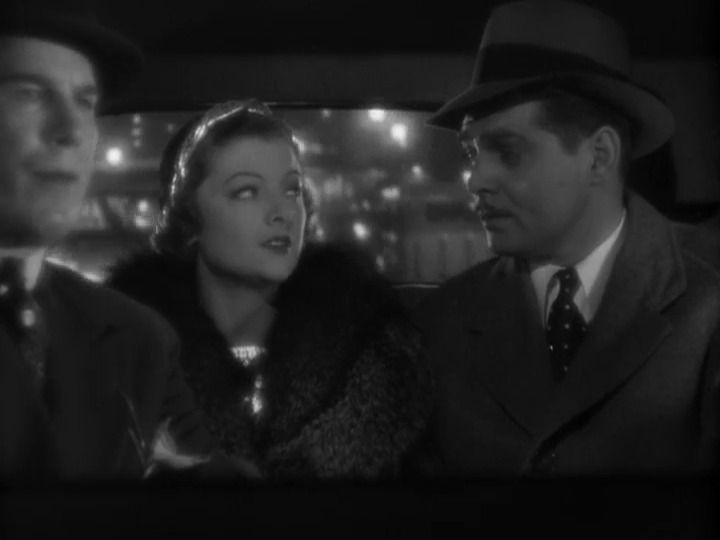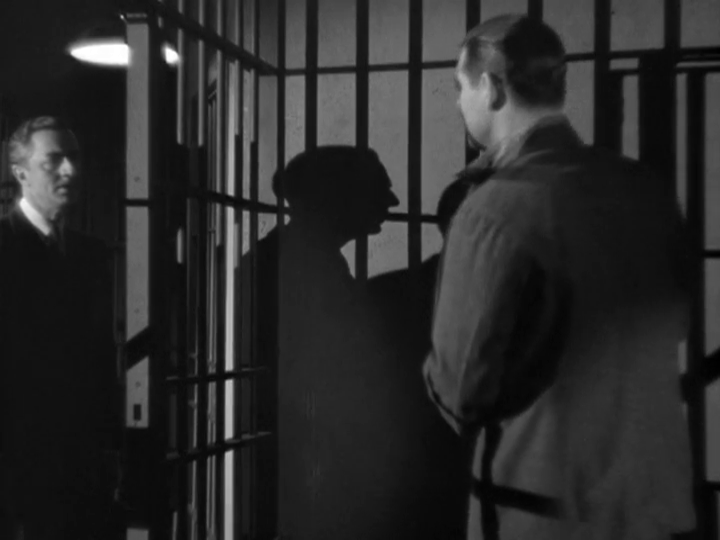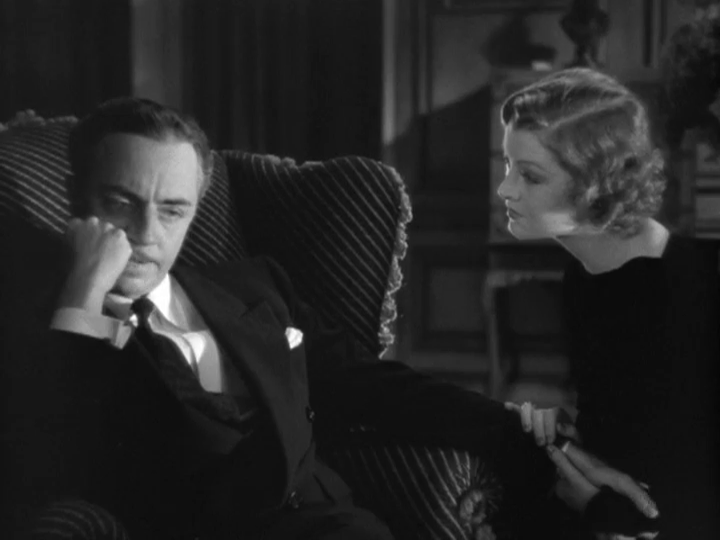“Die the way you lived — all of a sudden. That’s the way to go. Don’t drag it out.”
|

Synopsis:
After their parents die in a tragic accident at sea, two boys — one rambunctious (Mickey Rooney), the other studious (Jimmy Butler) — become lifelong friends while taking radically different career paths. Blackie (Clark Gable) becomes a notorious racketeer with a loyal moll (Myrna Loy), while Jim (William Powell) becomes a lawyer with aspirations towards governorship. Will their friendship withstand Loy’s realization that she wants more out of life than a gangster’s existence?
|
|
Genres, Themes, Actors, and Directors:
- Clark Gable Films
- Friendship
- Love Triangle
- Mickey Rooney Films
- Myrna Loy Films
- Orphans
- William Powell Films
- W.S. Van Dyke Films
Review:
Friendship and loyalty trump all else in this melodramatic tale of boys united forever through tragedy, turned into men who consistently “do the right thing” even when it goes against what society or their heart might tell them to do. DVD Savant writes cynically that “Manhattan Fairy Tale would be a better title for this fantasy with its scrupulously honest politico, gloriously noble racketeer and the glamorous but virtuous sweetheart who loves them both.” To that end, all three characters are surprisingly sympathethic, if unrealistic: one could only hope for such forthright and noble acquaintances, lovers, and allies. James Wong Howe’s cinematography is typically atmospheric, and the story moves along at a reasonable clip. This one is not quite must-see viewing but worth a look.
Note: This film is infamous for being the movie John Dillinger was watching before being gunned down by police outside the Biograph Theater in Chicago.
Redeeming Qualities and Moments:
- James Wong Howe’s cinematography


- Fine lead performances (Peary nominates Loy as one of the Best Actresses of the Year in his Alternate Oscars)

Must See?
No, but it’s worth a one-time look as Oscar-winner for Best Original Story. Listed as a film with Historical Importance and a Personal Recommendation in the back of Peary’s book.
Links:
|
One thought on “Manhattan Melodrama (1934)”
A once-must – as a solid example of ’30s filmmaking, with all of the elements of a strong flick firmly in place.
It’s a shame that ‘MM’ appears to be mostly remembered for its strong connection to Dillinger’s death. The film more than holds its own.
Yes, the depiction of moral fiber may seem somewhat unrealistic (considering how often humans can opt for grey in ethical matters) but it often falls to cinema to provide us with examples – in this case, of moral courage; what we do with those examples is up to us.
‘MM’ is a marvelous mix of sharpness – from script to direction to camerawork to performances. W.S. Van Dyke was rather good with actors and here he gets particularly good work from his three leads. It’s especially noticeable that the performances he gets from Powell and Loy stand in stark – yet equally satisfying – contrast to their work in ‘The Thin Man’, directed by Van Dyke in the same year. (I really like how Loy maneuvers her position in ‘MM’ as a compromised woman with split loyalty.)
‘MM’ raises consideration of the importance of integrity. It’s valuable food for thought.